 W
WAdolphe Appia, son of Red Cross co-founder Louis Appia, was a Swiss architect and theorist of stage lighting and décor.
 W
WBoris Aronson was an American scenic designer for Broadway and Yiddish theatre. He won the Tony Award for Scenic Design six times in his career.
 W
WFrancesco Bagnara was an Italian scenographer, decorator and landscape architect.
 W
WSir Cecil Walter Hardy Beaton, was a British fashion, portrait and war photographer, diarist, painter, and interior designer, as well as an Oscar–winning stage and costume designer for films and the theatre.
 W
WIvan Yakovlevich Bilibin was a Russian illustrator and stage designer who took part in the Mir iskusstva, contributed to the Ballets Russes, co-founded the Union of Russian Artists and from 1937 was a member of the Artists' Union of the USSR. Ivan Bilibin gained popularity with his illustrations to Russian folk tales and Slavic folklore. His work was throughout his career inspired by the art and culture of Rus'.
 W
WMaria Elena Björnson was a theatre designer. She was born in Paris to a Norwegian father and Romanian mother. She was the great-granddaughter of the Norwegian playwright Bjørnstjerne Bjørnson, who won the Nobel Prize in Literature in 1903.
 W
WMilena Canonero, Dame Grand Cross is an Italian costume designer, who has worked for both film and stage productions. She has won four Academy Awards for Best Costume Design, and been nominated for the award a total of nine times.
 W
WPatrick Joseph Caulfield,, was an English painter and printmaker known for his bold canvases, which often incorporated elements of photorealism within a pared-down scene. Examples of his work are Pottery and Still Life Ingredients.
 W
WMarta Domingo is a Mexican opera soprano, stage director and designer. In the 1950s and 1960s, she performed as a lyric soprano in Mexico and Israel. Since the 1990s, she has directed operas in Europe and North America. She is married to Spanish tenor Plácido Domingo, who has credited her with helping to guide his career.
 W
WAlbert Émile Clément Dubosq is one of the most prolific Belgian scenographers of the Belle Époque. Between 1890 and 1925 Dubosq decorated 446 theatrical entertainments of virtually every possible kind: ballet, circus, (melo)drama, opera, operetta, pantomime, revue, and vaudeville. Dubosq is furthermore one of the few scenic painters of his generation to have left a substantial sample of his art, namely twenty-one (near-)complete sets. Comprising Europe's largest holding of historical decors, the hundreds of flats and drops of the ‘Dubosq’ collection have survived at the Schouwburg of Kortrijk since 1920.
 W
WHenri Duponchel was in turn a French architect, interior designer, costume designer, stage designer, stage director, managing director of the Paris Opera, and a silversmith. He has often been confused with Charles-Edmond Duponchel, a contemporary who also lived and worked in Paris.
 W
WMargaret Frances Harris was an English theatre and opera costume and scenic designer.
 W
WAudrey Sophia "Sophie" Harris was an English award winning theatre and opera costume and scenic designer.
 W
WDavid Hockney, is an English painter, draftsman, printmaker, stage designer, and photographer. As an important contributor to the pop art movement of the 1960s, he is considered one of the most influential British artists of the 20th century.
 W
WTobias Hoheisel is a German-born stage designer and director.
 W
WNina Lawson was a Scottish wigmaker who ran the Metropolitan Opera wig department from 1956 to 1987. She was responsible for cleaning up to 750 wigs a week in her early tenure, from every chorus member's wig to those of stars including Birgit Nilsson, Luciano Pavarotti, Joan Sutherland, Beverly Sills, and Plácido Domingo.
 W
WStefanos Lazaridis was a stage designer, best known for his work in opera. Originally intended for a business career, he studied stage design in London, and was quickly in demand in theatres and opera houses, working with John Copley and other directors.
 W
WPascal Lecocq is a French painter and set designer. He is the Painter of Blue who paints on high backcloths of sky or deep sea, as a stage director, figures, horses, divers, allegories, architectures, Venice, and ancient ruins, between hyperrealism and surrealism with a whimsical sense of humor. He is the author of the diving world renowned picture: The Matador.
 W
WJohn Dennis Lennon was a British architect, interior designer, and furniture designer. He was responsible for the interior design of the Queen Elizabeth 2 and of 190-192 Sloane Street, London.
 W
WElaine J. McCarthy is an American projection and video designer for theater and opera.
 W
WOliver Hilary Sambourne Messel was an English artist and one of the foremost stage designers of the 20th century.
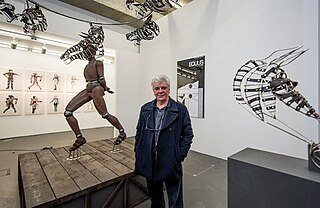 W
WJohn Napier is a set designer for Broadway and London theatrical performances.
 W
WDimitris Papaioannou is a Greek experimental theater stage director, choreographer and visual artist who drew media attention and acclaim with his creative direction of the Opening Ceremony of the Athens 2004 Olympic Games. His varied career spans three decades and has seen him conceive and direct stage works for the Athens Concert Hall, Edafos Dance Theatre and Elliniki Theamaton, work as a costume, set and make-up designer, and published over 40 comics.
 W
WGiuseppe Quaglio was an Italian painter and stage designer, active in scene painting in Mannheim, Frankfurt, and Ludwigsburg.
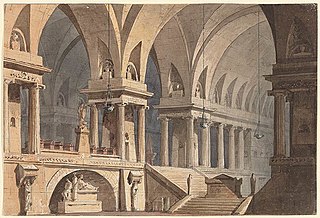 W
WSimon Quaglio (1795-1878) was a German stage designer of Italian extraction. He worked mainly in Munich, and was among the first designers to use built scenery instead of painted flats. He designed over 100 productions during his career.
 W
WStephen and Timothy Quay are American identical twin brothers and stop-motion animators who are better known as the Brothers Quay or Quay Brothers. They were also the recipients of the 1998 Drama Desk Award for Outstanding Set Design for their work on the play The Chairs.
 W
WCharles de Sousy Ricketts was a British artist, illustrator, author and printer, known for his work as a book designer and typographer and for his costume and scenery designs for plays and operas.
 W
WDavid Roberts was a Scottish painter. He is especially known for The Holy Land, Syria, Idumea, Arabia, Egypt, and Nubia, a prolific series of detailed lithograph prints of Egypt and the Near East that he produced from sketches he made during long tours of the region (1838–40). These and his large oil paintings of similar subjects made him a prominent Orientalist painter. He was elected as a Royal Academician in 1841.
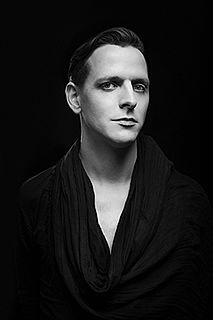 W
WRocc is a Slovenian-born opera stage director, scenographer, dramaturge, performance artist, opera manager and pedagogue. His professional mononymous pseudonym is a tribute to Marie Mrázková, Rocc's professor of stage acting and his mentor.
 W
WNicholas Roerich – known also as Nikolai Konstantinovich Rerikh – was a Russian painter, writer, archaeologist, theosophist, philosopher, and public figure, who in his youth was influenced by a movement in Russian society around the spiritual. He was interested in hypnosis and other spiritual practices and his paintings are said to have hypnotic expression.
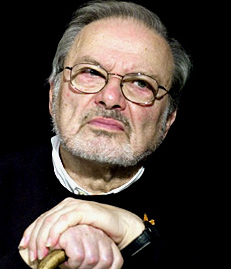 W
WMaurice Bernard Sendak was an American illustrator and writer of children's books. He became widely known for his book Where the Wild Things Are, first published in 1963. Born to Polish-Jewish parents, his childhood was affected by the death of many of his family members during the Holocaust. Sendak also wrote works such as In the Night Kitchen, Outside Over There, and illustrated many works by other authors including the Little Bear books by Else Holmelund Minarik.
 W
WFlorine Stettheimer was an American modernist painter, feminist, theatrical designer, poet, and salonnière.
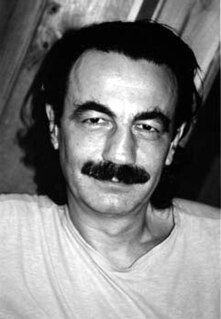 W
WGeorge Tsypin is an American stage designer, sculptor and architect. He was an artistic director, production designer and coauthor of the script for the Opening Ceremony of the Olympic Games in Sochi in 2014.
 W
WJoseph Urban was an Austrian-American architect, illustrator, and scenic designer.
 W
WGian Franco Corsi Zeffirelli, commonly known as Franco Zeffirelli, was an Italian director and producer of operas, films and television. He was also a senator from 1994 until 2001 for the Italian centre-right Forza Italia party.